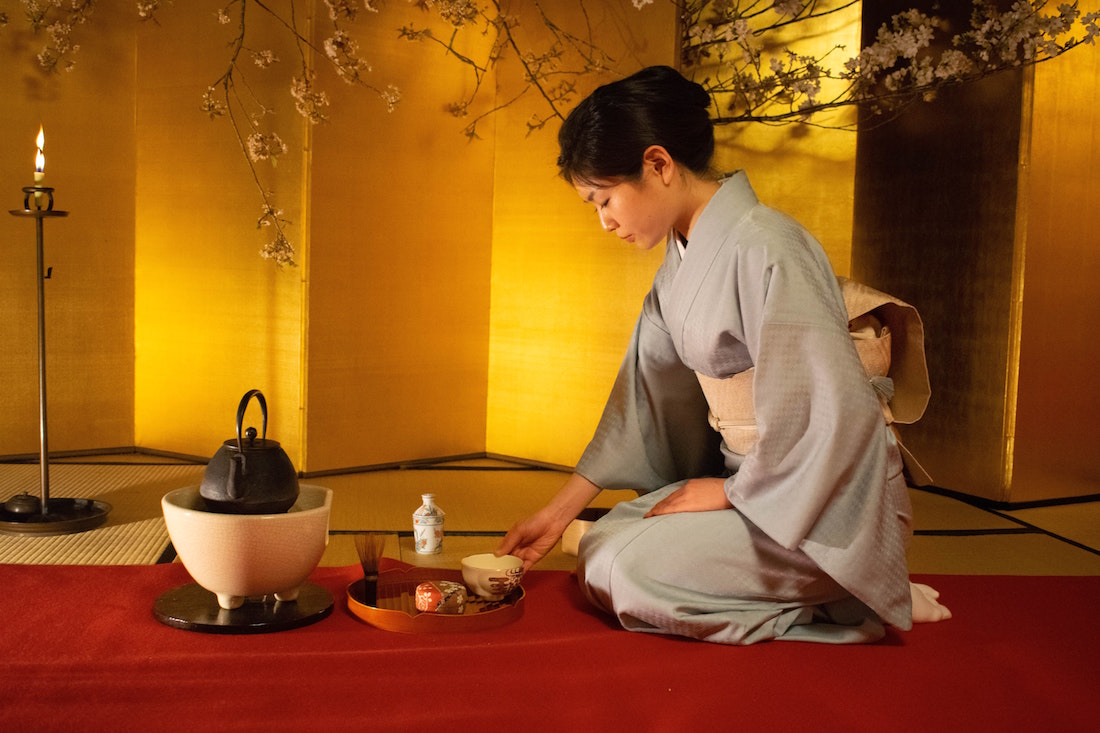The matcha tea latte: This is one GP-inspired trend I’m willing to get behind.
I love exploring healthy drink options—from smoothies to green juice and even detox teas. Here’s another get-glowing beverage to add to the collection: Matcha tea.
Matcha is a potent type of green tea that’s much higher in antioxidants and nutritional value than other varieties of green tea. Unlike the green tea you’re probably used to, matcha is normally ground to a fine powder—rather than remaining as dried leaves. This chlorophyll-rich powder gives the drink its vibrant green hue and, more interestingly, allows you to actually consume the tea leaves themselves, meaning less waste and a more concentrated boost of nutrients.
Matcha contains as much as five times the amount of antioxidants as other, nutrient-rich food. Matcha is notable for its high concentration of catechins. Roughly 20% of the catechins in matcha are epigallocatechin gallates (EGCG), one of the most widely recognized antioxidants for their cancer-fighting properties. Catechins also have antibiotic properties, making matcha a perfect drink if you’re feeling under the weather.
Although matcha does contain caffeine, it doesn’t impact the body the same way that the caffeine in coffee does. According to Brendan Brazier, creator of Vega, the caffeine in matcha is released slowly over a period of hours. It won’t cause jitters, it won’t mess with your blood sugar, and it won’t put stress on the adrenal glands like a serious espresso habit would. The L-theanine present in matcha may even improve memory and concentration—how’s that for a 3PM-slump buster?
Much of the recent buzz surrounding matcha concerns its scientifically-proven ability to support weight loss goals by interacting with leptin (a hormone that regulates fat storage and appetite, hence its nickname, the “hunger hormone”) and inhibiting abdominal absorption of lipids (fats). Studies have shown that participants who drank catechin-rich green tea (like matcha) burned more fat compared to participants who didn’t consume the tea.
Some celebrity nutritionists, like Cyntha Pasquella, have witnessed promising results after including matcha in their clients’ fitness plans. Pasquella suggests swapping your coffee for matcha and enjoying between 1-3 cups a day—just not right before bedtime. Of course, matcha tea alone cannot work miracles. When combined with a lifestyle built on healthy habits, however, it may provide a helpful boost.
If all of that weren’t enough, matcha is a source of calcium, vitamins A and C, iron, protein, and calcium. Matcha may help reduce levels of LDL (bad cholesterol) and balance levels of HDL (good cholesterol). Finally, the chlorophyll in matcha helps detoxify the body by chelating heavy metals from the system.
Hot matcha tea is made by whisking hot water and a half-teaspoon of powder until you’ve got a lovely, green, frothy beverage. Matcha powder can also be tossed into smoothies and whisked into juices.
Have you tried matcha tea yet?
More healthy drinks to try: Benefits of Detox Tea – Hype or For Real?
15 Amazing Benefits of Chlorophyll Water
6 Ways to Get the Most Out of Your Green Smoothie
Get more like this–sign up for our newsletter for exclusive inspirational content!





